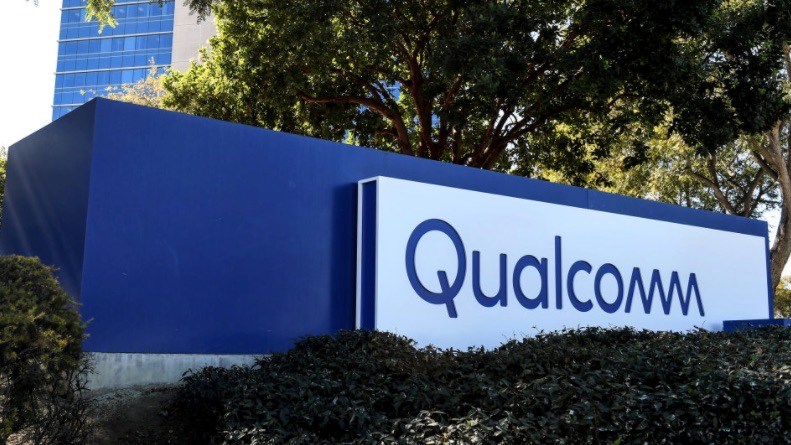
- Arm is taking Qualcomm to court
- Chip developer claims Qualcomm’s Nuvia unit has breached licence agreements
- Seasoned tech analyst Richard Windsor sees the move as ‘strange’
- He believes the only “real winner” from this skirmish could be Arm’s open source rival, RISC-V
The semiconductor sector overheated late Wednesday following the news that Arm, the British chip design specialist that has been at the heart of a years-long and still ongoing ownership saga, has filed a lawsuit in the United States District Court for the District of Delaware against Qualcomm Inc. and two of its subsidiaries, Qualcomm and Nuvia, for "breach of certain license agreements with Arm and trademark infringement." None of this sounds positive, but one experienced industry watcher believes the potential beneficiary of Arm's decision could be one of its small rivals, RISC-V (which we'll come to later).
In its announcement about the legal action, Arm noted it is "seeking specific performance of the contractual obligation to destroy certain Nuvia designs, an injunction against trademark infringement as well as fair compensation for the trademark infringement." Qualcomm acquired Nuvia in 2021 for $1.4bn and Arm’s beef is that Nuvia is developing products using Arm designs without having the appropriate licence.
The move was unexpected – Arm has not been a litigious company – and Qualcomm investors reacted accordingly, as the wireless chip giant’s share price slipped by 4% to $126.97.
But these are different times for Arm, which is still currently owned by SoftBank. It has been through the wringer in the past few years, having been the subject of an unsuccessful $66bn acquisition attempt by Nvidia, which was abandoned earlier this year, and, now, the subject of protracted IPO plans that have turned somewhat political – see What’s up with… SoftBank and Arm, Aviat and Ceragon, Asterion.
And now it’s lining up for a legal fight with Qualcomm, whose CEO even suggested it might buy a stake in Arm if other chip vendors were up for acquiring a collective slice (or limb).
So what’s the deal? The UK chip specialist said it is filing the claim to protect itself, its partners and the "unparalleled ecosystem we have built together. Arm and its partners have invested billions of dollars to create industry-leading intellectual property. Because Qualcomm attempted to transfer Nuvia licenses without Arm’s consent, which is a standard restriction under Arm’s license agreements, Nuvia’s licenses terminated in March 2022. Before and after that date, Arm made multiple good faith efforts to seek a resolution. In contrast, Qualcomm has breached the terms of the Arm license agreement by continuing development under the terminated licenses. Arm was left with no choice other than to bring this claim against Qualcomm and Nuvia to protect our IP, our business, and to ensure customers are able to access valid Arm-based products.”
It added: “Arm takes pride in our role as innovator of the world’s most critical semiconductor IP and the billions of devices that run on Arm. These technological achievements have required years of research and significant costs and should be recognized and respected. As an intellectual property company, it is incumbent upon us to protect our rights and the rights of our ecosystem. We will work vigorously to protect what is rightfully ours and we are confident that the courts will agree with us.”
This all sounds very noble but, according to Richard Windsor, an investment adviser who has tracked the technology markets closely for decades, it’s also somewhat bizarre, and he wonders if there are some behind-the-scene tactics that have led to the legal move.
You can check out Windsor’s thoughts, which include the potential influence of Apple (which has already tried to destabilise Nuvia), in his as-always insightful and entertaining analysis, right here. But the most interesting takeaway from Windsor is that he believes “the only real beneficiary” of this “civil war” is RISC-V, the open source chip design player that, as Windsor points out, wasn’t doing too much of note before Nvidia made its move on Arm.
“The attempted acquisition of Arm by Nvidia lit a fire underneath the tail of a moribund RISC-V which is now attracting investment and gobbling up share at the low end of the market,” notes Windsor. “RISC-V remains a very small competitor to Arm that has yet to have any significant impact on its revenues, but the threat is growing, and annoying Qualcomm in this way is likely to push it to allocate more resources to RISC-V,” and that’s something Arm doesn’t really need as investors are courted for the IPO.
Windsor believes this issue will get sorted without going to court and that neither Arm nor Qualcomm/Nuvia will be much impacted financially, and as a result, “the only real beneficiary here is RISC-V.”
It’s a very interesting theory – RISC-V is worth watching out for as the chip sector seeks to diversify.
- Ray Le Maistre, Editorial Director, TelecomTV
Email Newsletters
Sign up to receive TelecomTV's top news and videos, plus exclusive subscriber-only content direct to your inbox.




